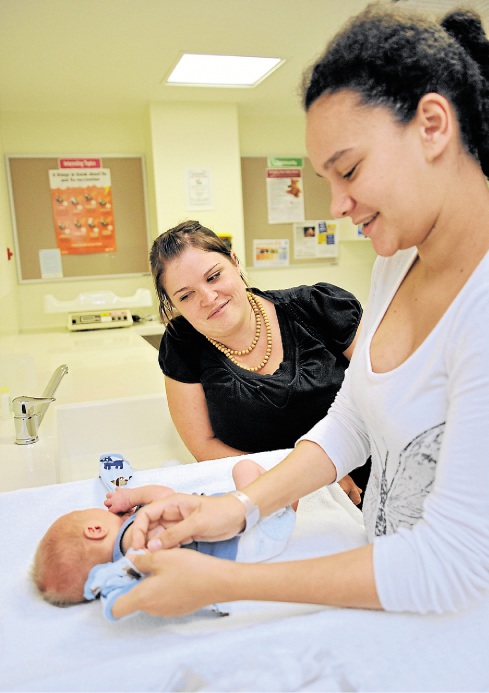“She can have her other children around, hop into her own bed and go on with her normal life.”
This emphasis on childbirth as a normal physiological process is the midwives’ mantra.
“Midwives are experts of normal birth and obstetricians are experts of complications in pregnancy, so assuming everything is normal throughout pregnancy then midwives are the people to provide that care,” Pring adds.
“It is really important that people know that pregnancy is not something to be cured. It is not an illness,” says midwife educator Kate Russell.
“But we are not here to tell people what to do. If you want to have an elective caesar, formula-feed your baby and put it into creche at three days old, I don’t judge you.
“It’s about informed consent. People put more research into their mobile phones or home insurance than they do into having a baby sometimes; you’d be amazed.”
Of course, not every pregnancy has a happy ending and midwives are there for families on those occasions also.
Midwife Brindie McPhee, had not long graduated when she volunteered to assist a family with a stillbirth. “It’s very, very sad and very hard to separate yourself from the family, but we have good support and there is always a debriefing.”
As Russell puts it: “We are so blessed in what we do. We get the highest of the highs, but also the lowest of the lows. Thankfully the lows are infrequent these days.”
Some people would be surprised to discover there are three male midwives on staff at Sunshine.
“It has stopped a lot of conversations,” Ian Kenny laughs.
However, while there are some obvious cultural sensitivities, women who baulk at having a male midwife might also want to consider the sex of their obstetrician — the majority being male.
“I have birthed Muslim ladies,” Kenny reveals. “There are occasions where women don’t want a male midwife, but I find most women are more interested in having someone who knows what they are talking about and is empathetic toward what they are experiencing.”
Kenny switched to midwifery after nearly two decades working in critical care.
“I’m very glad I did it, but for reasons I didn’t expect,” he says.
“When I made the decision to do ‘mid’ everyone said it’s going to be so nice for you. You are going to get to hold babies and it is going to be beautiful to see new life instead of people dying.
“And that’s all true and good, but what really got me is that in critical care you tend to do things to people.
“There is not a lot of discussion, not a lot of negotiation, whereas midwifery is very much a partnership between me and the woman and her family.”
The term midwife — which derives from old English and means literally ‘with woman’ — doesn’t bother him in the slightest. “As a male midwife I am still ‘with woman’. My long-running joke is that if I was midhusband, I’d be taking dad down the pub for a beer.”








